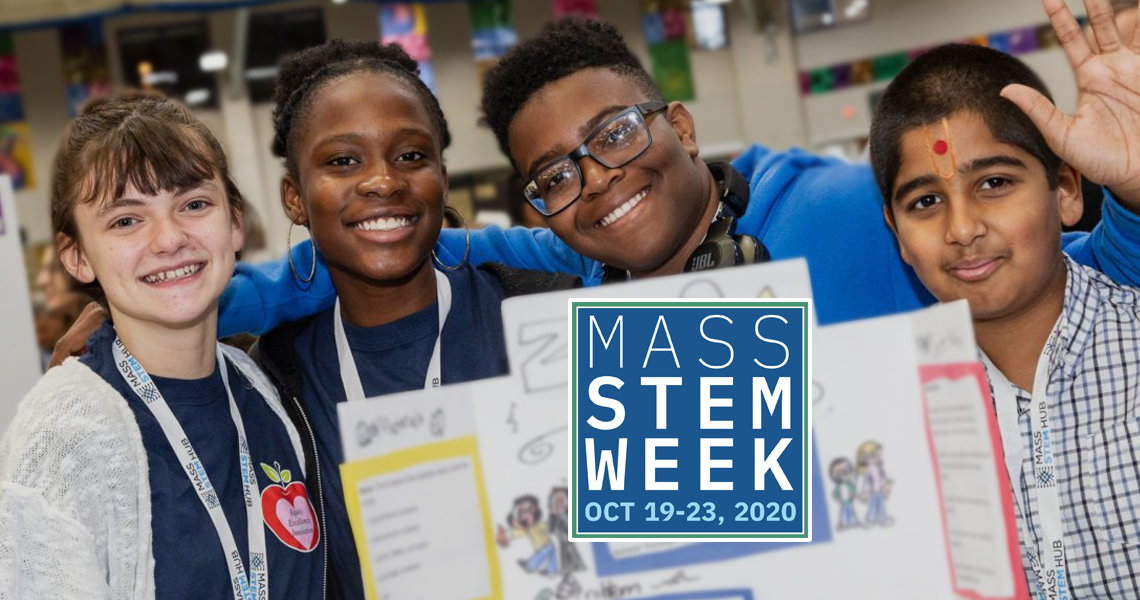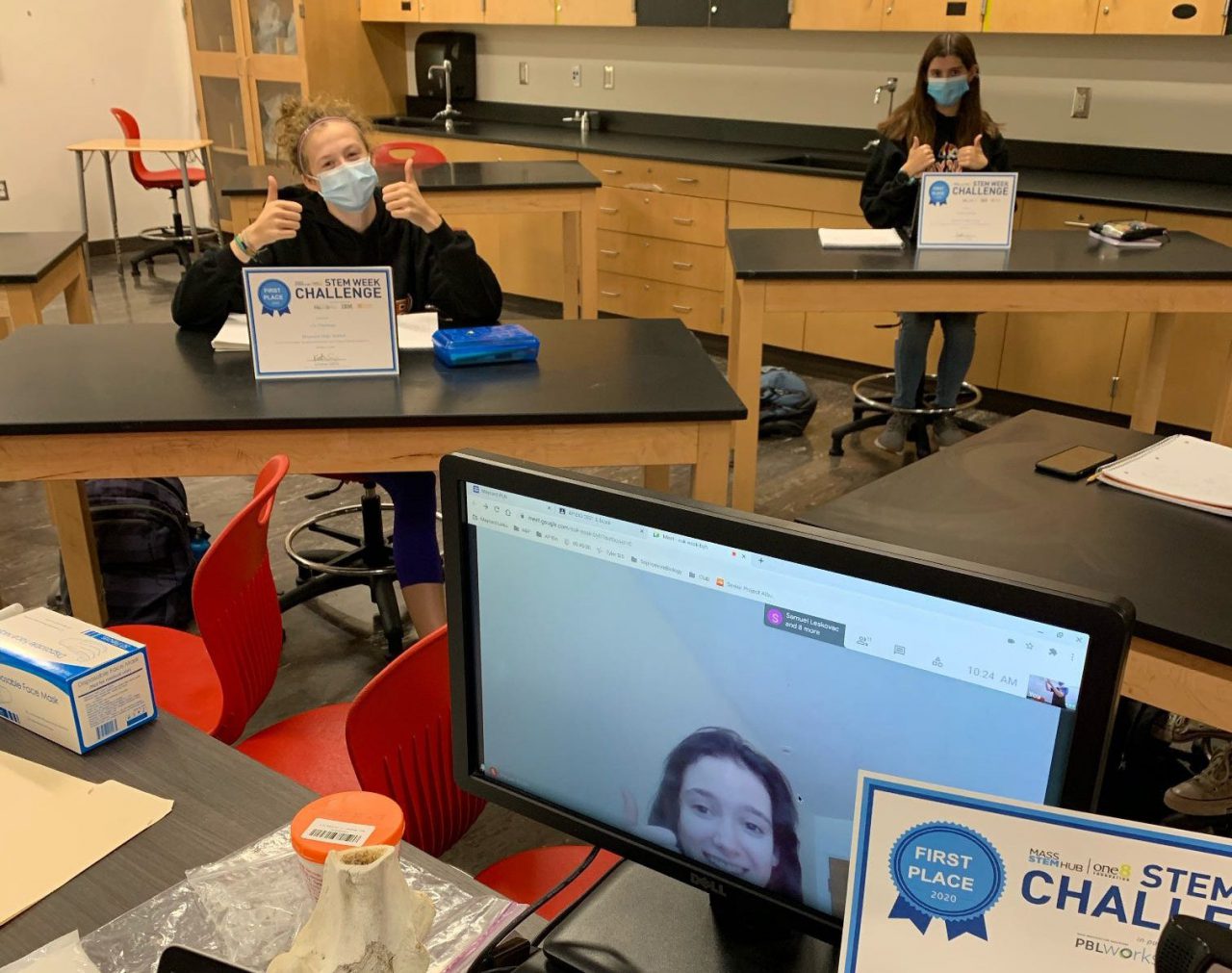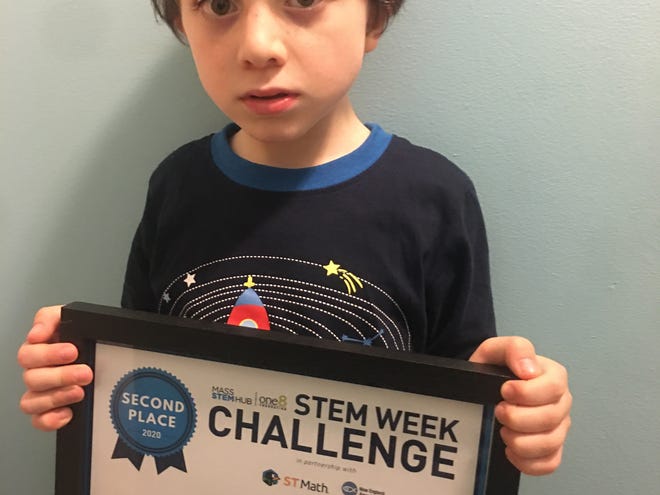
Article | PBLWorks
A Project on Slowing the Spread of COVID-19 in Massachusetts
October 19, 2020
Check out this blog post by STEM Week Challenge high school curriculum partner PBLWorks about the Slowing the Spread, a project challenging students to create COVID-slowing apps.
| October 19, 2020
This week, many high school students across the state of Massachusetts are engaging in the same project.
It’s “Slow the Spread,” a PBL unit that focuses on using design thinking to address challenges associated with COVID-19.
Slow the Spread is part of the STEM Week Challenge from Mass STEM Hub (a program of the One8 Foundation) for Mass STEM Week, a statewide STEM initiative happening now. The project was developed by PBLWorks, in partnership with Partners in Health and IBM. Teachers from over 60 schools participated in the Slow the Spread training and plan to implement the project.
The driving question for the project is, “How can we design an app that will help people in our community to slow the spread of COVID-19?” Students explore data related to viral spread in Massachusetts, learn about key indicators such as R-nought and serial interval numbers, and investigate the human challenges associated with interventions like testing, quarantining, and contact tracing.
Students get support from design thinking experts at IBM, and from Partners In Health, the organization leading the contact tracing effort in Massachusetts.
Students build empathy and understanding related to the complexities of slowing the spread of the disease. For example, they consider the needs of:
- Someone who has been exposed to COVID-19 but is the primary caretaker for an elderly relative
- A single parent who may have been exposed but is unable to stay home from work without fear of losing their job
- Teens who struggle to socially distance while maintaining their mental health.
Using elements of the IBM design thinking process, students define a specific problem that can be addressed via technology, explore the problem, brainstorm, prototype and test solutions, then create a paper prototype and digital presentation of their app designs. While students are not required to program their apps, many Computer Science instructors are choosing to pursue this extension.
Throughout the process, students have access to support from industry professionals via the STEM Week Challenge Ask-an-Expert online forum, and students will share their app designs with experts for evaluation and feedback.
This project focuses on the design thinking process, and it also invites students to consider the limitations of technology to address complex human challenges.
As Jason Park (Resource Navigator for Partners In Health) says in the entry video, “As the pandemic got started, many thousands of technologically minded folks and app developers immediately started to ‘solve’ the pandemic with contact tracing apps. But the systems-level problems are not tech-solvable. Apps in isolation from human-driven, complex programs will not work. However, individual-level problems in your community can be supported with apps that are designed with human needs in mind.”
Students in the Slow the Spread challenge reflect on how their app supports larger multi-pronged systems of intervention, guide their design decisions based on what they learn about authentic user needs, and analyze the trade-offs associated with their design solutions.
While the COVID-19 pandemic has impacted our communities in heartbreaking ways, it also offers students an authentic, relevant opportunity to do work that matters and to engage in deep thinking about complex systems.
If you’re a Massachusetts educator interested in participating in this project, register for an asynchronous training here and implement the challenge with your students when it’s best for your schedule.
Or if you’re an educator outside of Massachusetts, you can access a variation on this project in the PBLWorks Project Designer, or learn more about other COVID-19-related project ideas.
Sarah Field, Senior Curriculum Manager, designs professional development programs and curriculum for PBLWorks.




